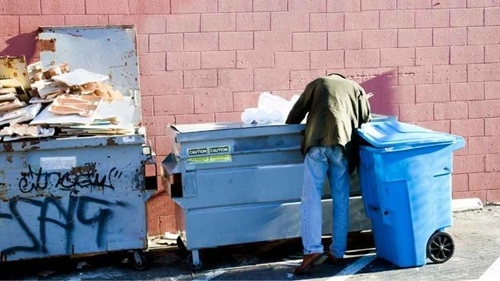Disposing of old carpet by burning it might sound like a simple way to clean up after a renovation, but under U.S. law, doing so is almost always illegal. Burning carpet releases toxic chemicals, violates environmental protection laws, and can lead to fines, criminal charges, or both.
Here’s a full legal explanation:

Federal Law: The Clean Air Act and EPA Regulations
Under the Clean Air Act, enforced by the Environmental Protection Agency (EPA), it is illegal to openly burn materials that release harmful air pollutants.
Modern carpets are typically made of synthetic fibers such as nylon, polyester, or polypropylene — all of which are derived from plastics. When burned, they release dangerous chemicals, including:
- Dioxins
- Hydrogen cyanide
- Volatile organic compounds (VOCs)
- Carbon monoxide
The EPA explicitly classifies burning carpet or any other synthetic household waste as illegal open burning. The law aims to protect public health from the severe environmental and respiratory effects of these emissions.
Violations of the Clean Air Act can result in:
- Civil penalties up to $25,000 per day per violation
- Criminal prosecution for repeat or intentional offenses
In short: burning carpet is a federal environmental offense, even if it happens on your own property.
State and Local Fire Laws
In addition to federal law, every state — and most cities and counties — have strict fire codes and open burning bans that prohibit burning household materials like carpet, mattresses, or furniture.
Here are a few examples:
- California: Burning carpet violates state air quality and fire safety laws; offenders can face fines and citations from local air districts.
- Texas: The Texas Commission on Environmental Quality (TCEQ) prohibits burning synthetic materials like carpet, plastics, and rubber.
- New York: State Environmental Conservation Law bans the open burning of all household waste, including flooring and textiles.
- Florida: Under state law (F.A.C. 62-256), burning carpet or similar materials is prohibited unless done in a licensed waste disposal or recycling facility.
Violating state or local fire codes can lead to:
- Fines from $100 to $5,000,
- Cleanup fees, and
- In severe cases, misdemeanor criminal charges for reckless burning or air pollution.
Public Safety and Liability Risks
Carpet doesn’t just pollute the air — it’s also extremely flammable. Once ignited, synthetic carpet fibers melt and produce thick, toxic black smoke that can quickly spread, making the fire difficult to control.
If the fire spreads to nearby structures or public land, you could face:
- Civil liability for property damage,
- Arson or reckless endangerment charges, or
- Fire department response fees for unauthorized burns.
Even if the fire remains contained, the odor and smoke can trigger nuisance complaints from neighbors, leading to legal action under public nuisance or air pollution ordinances.
Legal and Safe Alternatives to Burning Carpet
Instead of burning your old carpet, here are lawful, environmentally safe disposal methods:
- Recycling centers: Many U.S. cities have carpet recycling programs that accept synthetic and natural fiber carpets.
- Bulk waste pickup: Most municipalities offer scheduled pickups for large household waste like carpet, furniture, and flooring.
- Landfill drop-off: You can dispose of carpet legally at a licensed landfill or waste transfer station.
- Manufacturer take-back programs: Some carpet manufacturers, such as Shaw and Interface, run eco-friendly recycling initiatives for old flooring.
These methods keep you in compliance with federal and state law — and prevent toxic emissions from harming your community.
FAQs About Burning Carpet in the U.S.
Q. Is it illegal to burn carpet in your backyard?
Yes. Burning carpet in your yard or on your property is illegal in all 50 states because it violates EPA open burning rules and local fire codes.
Q. Can I burn carpet in a barrel or fire pit?
No. Even if contained, burning carpet releases toxic fumes and is considered illegal open burning under both federal and state law.
Q. What are the penalties for burning carpet?
Penalties vary, but you could face fines from hundreds to tens of thousands of dollars, and possible criminal charges for environmental violations or reckless burning.
Q. Can I get a permit to burn carpet?
No. Burn permits issued by fire departments or environmental agencies never allow synthetic materials like carpet or plastics to be burned.
Q. How should I legally dispose of carpet?
Use your city’s bulk pickup service, drop it at a waste transfer station, or find a certified recycling facility that accepts carpet and padding.
Conclusion
While it might seem convenient to toss your old carpet on a bonfire, burning carpet is flat-out illegal under U.S. environmental and fire safety laws. The synthetic fibers release dangerous chemicals that harm your health and violate the Clean Air Act.
The smart — and legal — choice is to recycle or properly dispose of your carpet through local waste programs. It’s safer for your community, better for the environment, and keeps you well within the law.

